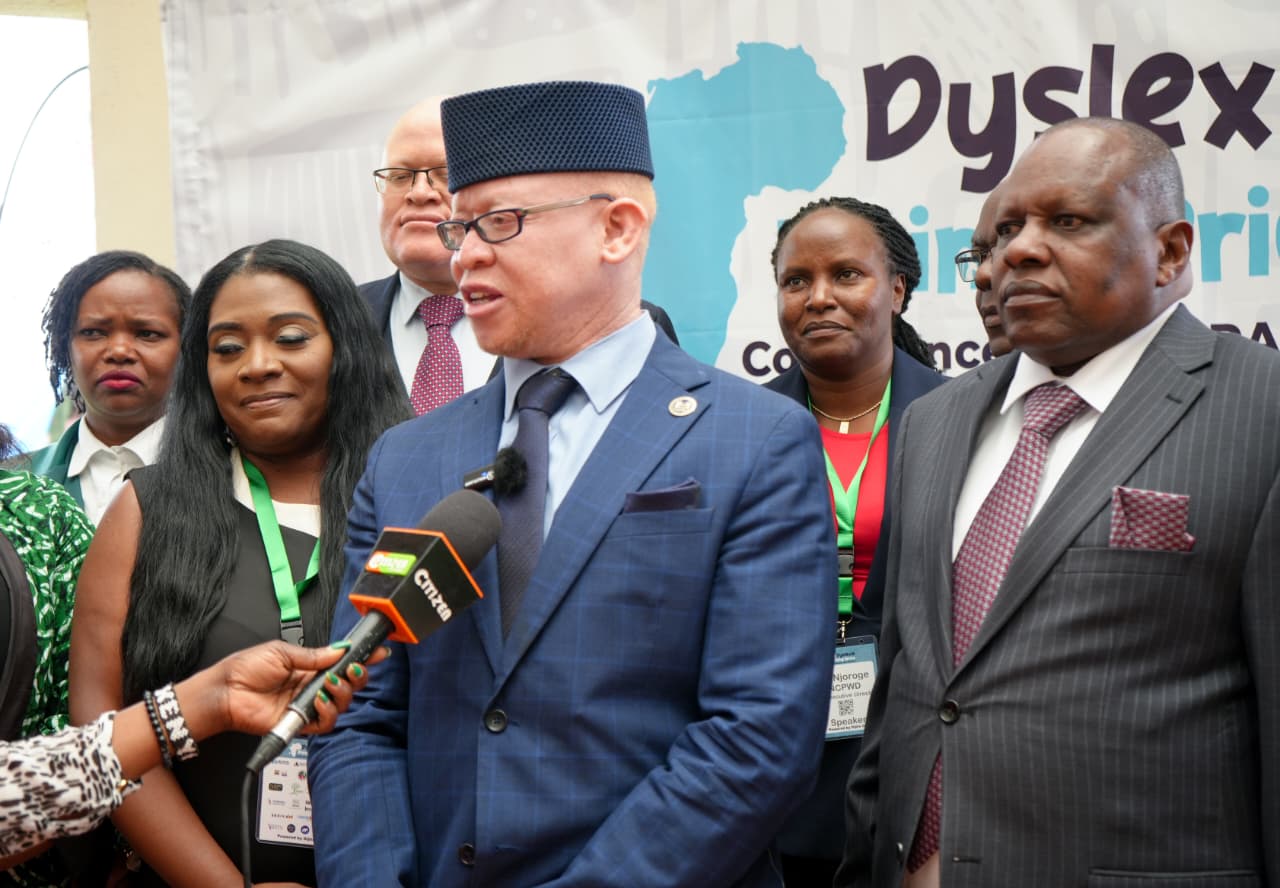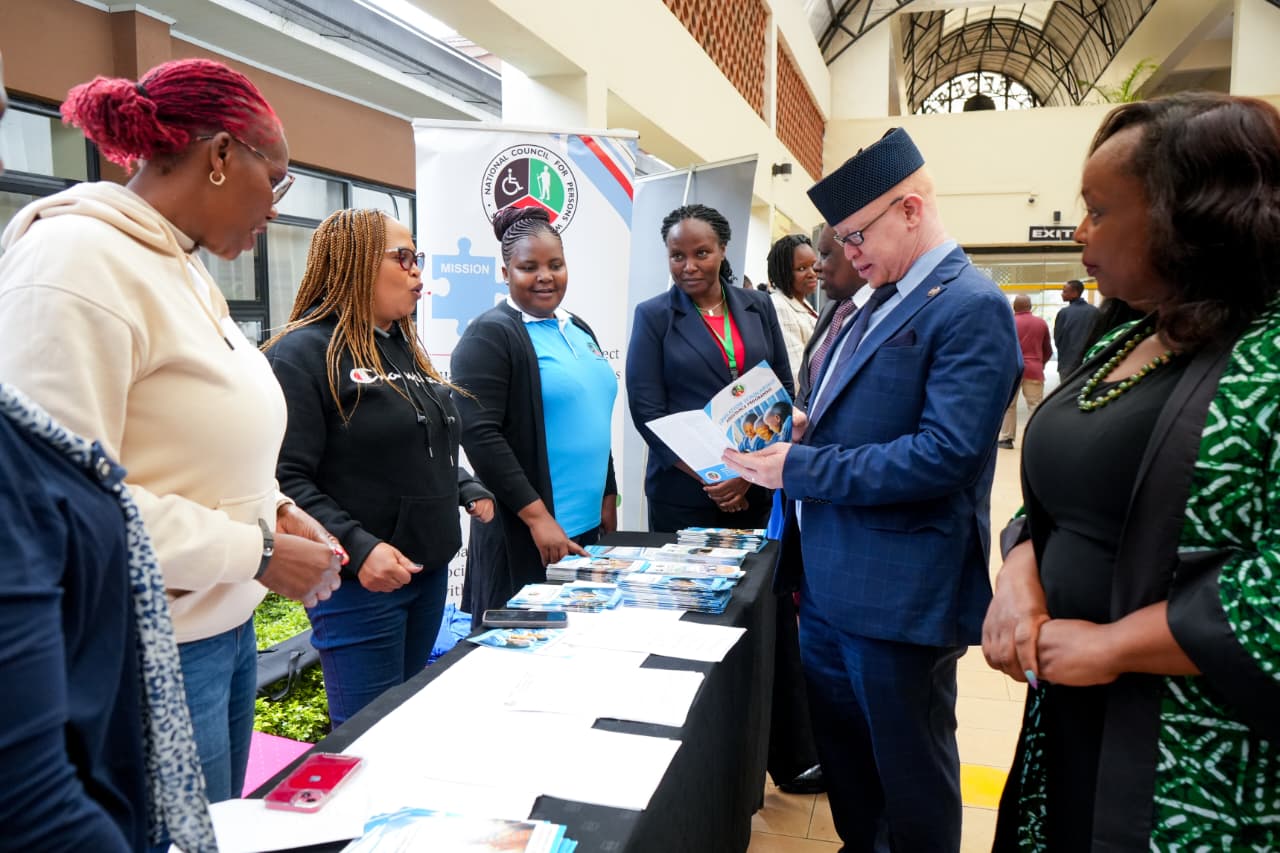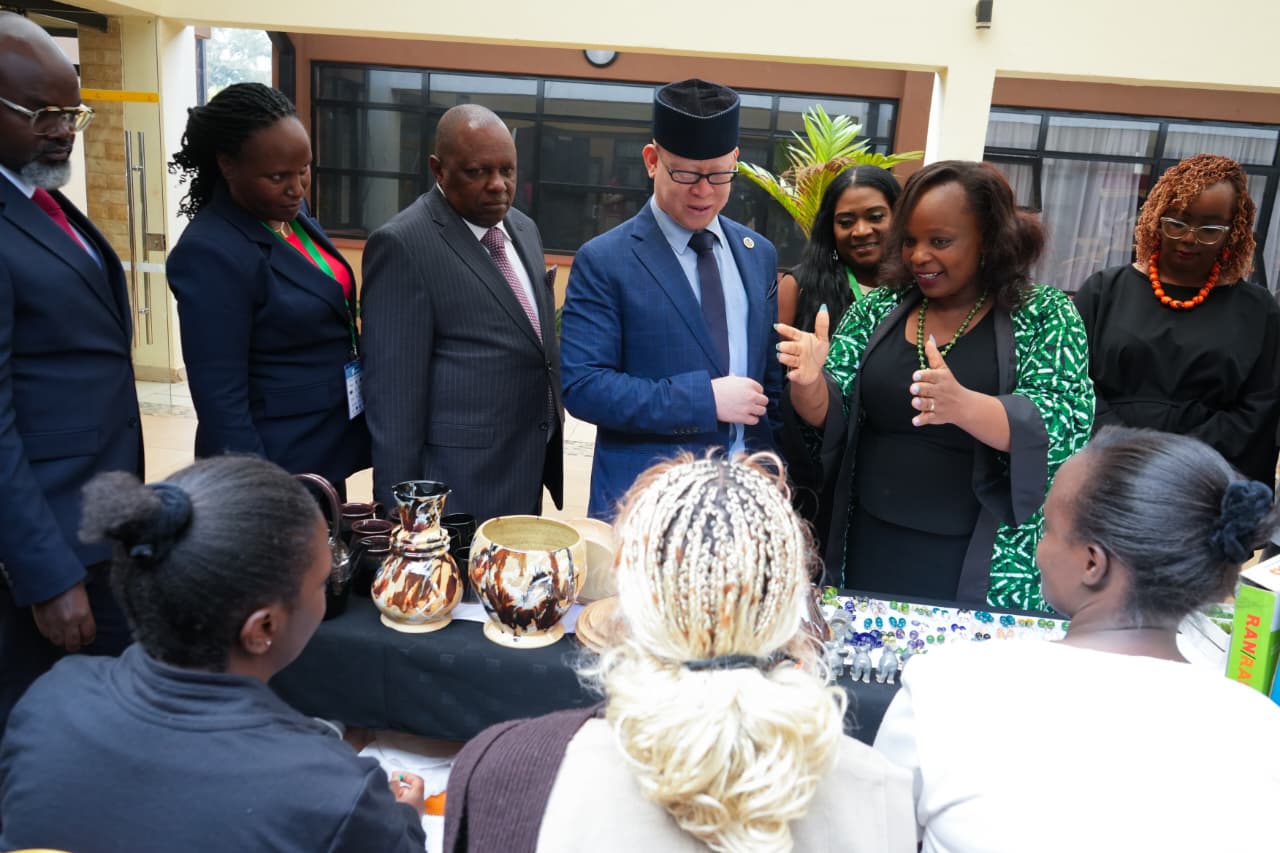

As a parent, Lilian Weru and her son have been to hell and back.
The situation was made worse by the negative
attitudes displayed towards her son, who lives with disability, making them
feel like pariahs amongst their social support system.
Right from his birth and through his initial
stages of socialisation, the young Jimcy Wachira has undergone untold forms of
stigma, but his courage and resilience, born out of life experiences, have
helped him push all this behind him and he is ready to face the future
unperturbed. One feels for his mother when she narrates the story of her life
with him.
Not to mention his childhood hardships, Wachira
today stands as a testimony to what children born with dyslexia undergo in the
hands of their handlers and how they have been able to weather the storm.
For Lilian, it has been quite a challenge
handling her child’s dyslexic condition as he often faced significant trials
that outrightly threatened his future prospects and aspirations.
Lilian poured her heart out during the
Dyslexia Rising Africa Conference (DRAC25) held at the Kenya Institute of
Special Education recently.
The conference served as a record-breaking event that broke the cycle of stigma, neglect and misperception about dyslexic people.

Being the very first pan-African conference of
its kind to be held here in Kenya, the summit shed some light on the start of a
new era of open dialogue advocating for neurodiversity as a human right and a
factor of the development agenda in Kenya.
As appertains to Wachira’s academic journey,
Lilian recalled a conversation with his school principal where the latter
communicated his intention to retain him in his preliminary class with a view
that he did not merit to proceed to grade one.
But to Lilian, this decision sounded like a
setback to her son’s dreams and one that was bound to create a sense of
hopelessness.
“The assessor had suggested that we just push my son along in school life, asserting that nothing could be done to help his condition,” Lilian recalls.
However, as fate would have it, Lilian’s
determination in pushing her son through the academic cycle paid off when she
learnt of the Bloom Dyslexia Centre through the media and sought to enrol him
at the centre.
By then Wachira had clocked age 11 and this
made his mother worried.
Her worries were, however, diminished immediately she met the Chief
Executive Officer (CEO) of the Bloom Dyslexia Centre, Ms. Esther Wamai, for
whom to date she has many accolades.
“When my son was eleven, we met Madam Esther
at the centre and she was quite welcoming. My son was taken through a fresh
assessment and was admitted to grade one class, after which his academic
prospects blossomed and today, I am a comfortable mother and so grateful to the
Bloom CEO. My now 15-year-old son has thrived and plays the violin as he
continues with his studies,” Lilian brags, radiating with happiness.
Wachira’s case is not in isolation.
Peter King’ori, whose daughter was once dismissed as a child who “could not
amount to anything” due to her dyslexic condition, is now a proud father.
Despite her society’s misgivings, King’ori’s
daughter, Daysha Wanjira, found a safe space at the Kenya Community Centre for
Learning where she was able to study and bear other responsibilities.
Wanjira proved her worth when she contested for her learning centre’s student leadership vice president’s position.

Against all odds, Wanjira ably campaigned and
won the position and even prepared her own powerful acceptance speech, a
testament to her newfound self-assurance.
King’ori is quite proud of his daughter and
has high hopes for her career and general life.
“Our children with disability can be able to
flourish if we offer a safe environment for them. My daughter never used to
speak in front of a group of people but nowadays when we go to any forum, she’s
the noisiest of all,” says the father with lots of satisfaction.
King’ori opines that advocacy and incredible
resilience from us as parents in our quest to help our children succeed is
quite important.
The conference heard that in some cases,
parents felt dejected when medical experts dismissed them in their efforts to
improve their dyslexic children’s lives, making them feel isolated and
misunderstood.
However, in spite of these obstacles, the
majority of parents go to great lengths to successfully support their children,
pushing them to high standards in life.
Lele Mutindwa, a university student who was
diagnosed with dyslexia four years back, calls for respect for all children,
arguing that every brain functions and reasons in a unique manner.
Mutindwa challenges teachers to endeavour to
recognise and focus on a student’s abilities and not their weaknesses.
“If you keep on pushing us down at what we are
not good at, then we are not going to be any good at anything,” she cautions.
The conference emphasised the provision of
innovative accessibility tools across the African continent to assist dyslexic
students to overcome their unusual challenges, where misdiagnoses and suffering
occur owing to prevalent cultural beliefs and a lack of proper awareness.
Nyange Muasya, a committed teacher and
inclusive education campaigner, made a compelling argument for the potential of
breakthrough technology in assisting learners with dyslexia.
Muasya observed that such technological
innovations were necessary to unleash the empowering potential of assistive
technologies for learners, citing Speech-to-Text on Microsoft Word, which he
said could bypass spelling and writing difficulties, describing it as a great
transformation for those with dyslexia.
Text-to-Speech software such as Seeing AI, he
noted, is able to read written text aloud, subsequently making information
available to the learners.
“Technology makes life easier for everyone,
but it makes things possible for individuals with disabilities, including those
with dyslexia, only if its tools are availed to them,” he stated.
It is in this understanding that, despite all
these challenges, Bloom Dyslexia Centre under the stewardship of Wamai has
offered critical solutions that have transformed the lives of early learners
struggling with dyslexia, helping most of them to unbridle their potentials.
“With our keen early detection and proven
accommodations, Bloom has made steps in alleviating these detrimental
consequences and reshaped its learners’ dreams into reality by turning
disability into ability,” Wamai explains.
Lameck
Maloba works at the Office of Government Spokesperson




















